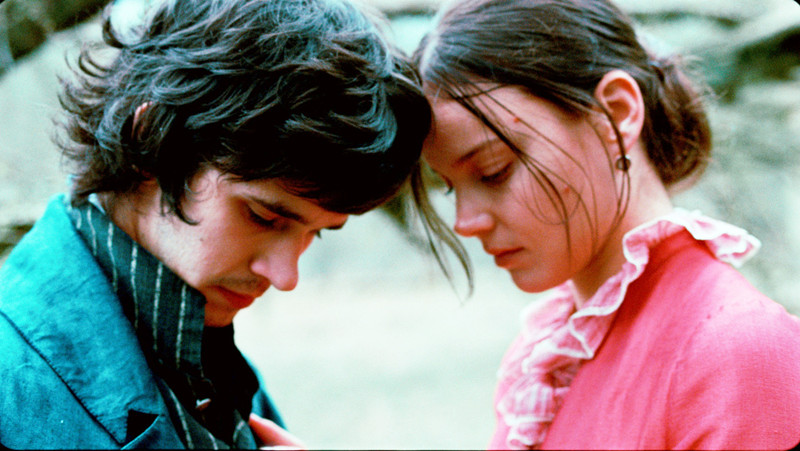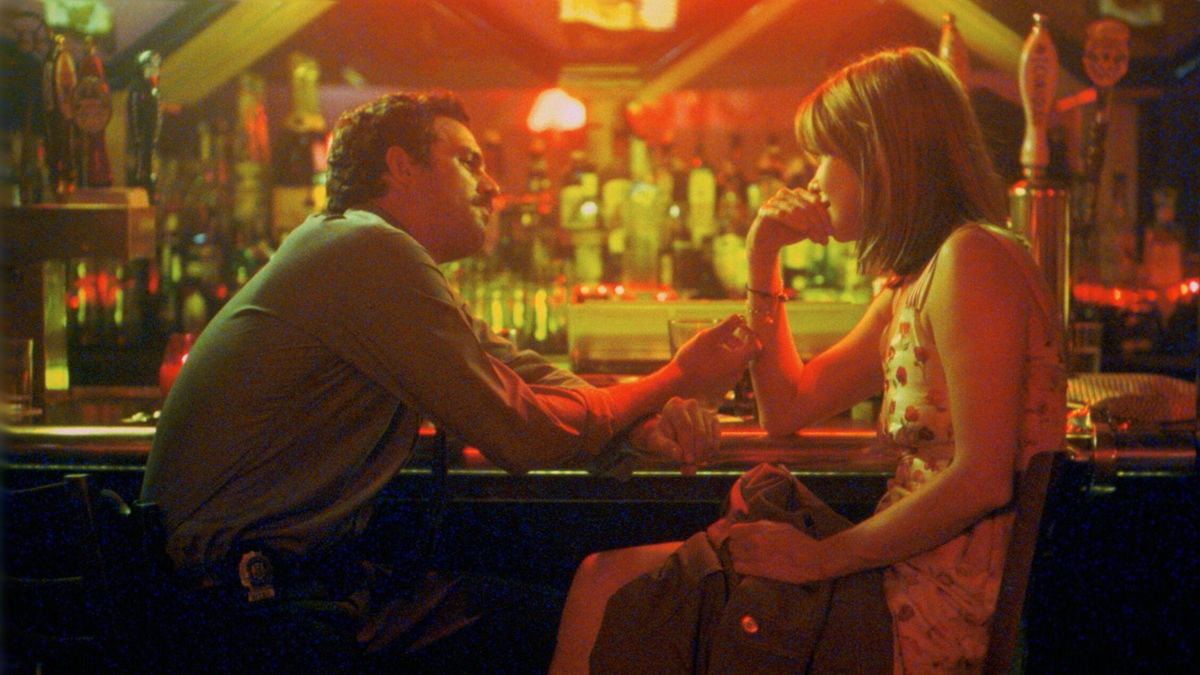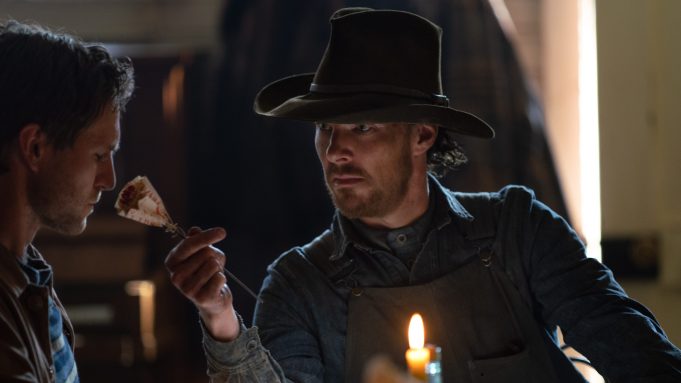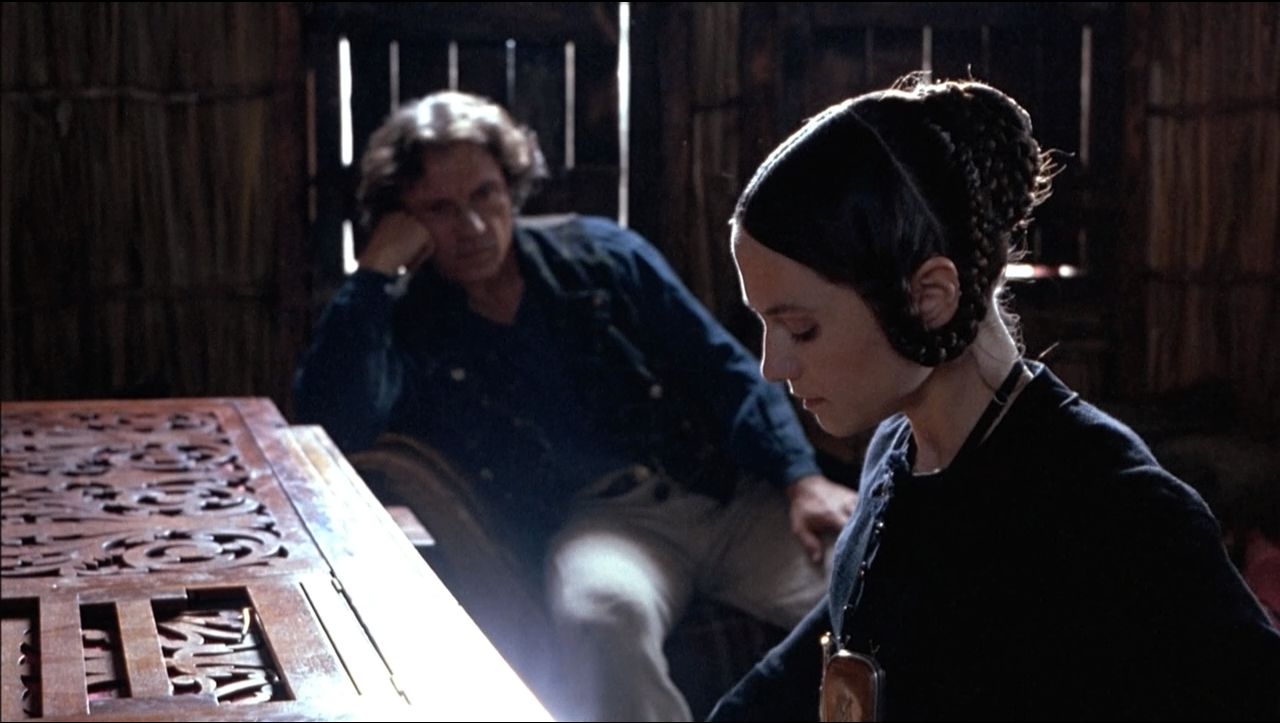4. Bright Star (2009)

“Bright Star” was Campion’s last movie before her 12 year hiatus from the big screen (during which, to be fair, she kept busy, writing and directing two seasons of “Top Of The Lake”) which was only broken last year – and had it come to be her last feature, it would’ve been an extremely fitting coda to a beautiful career.
In many ways, it’s a return to basics for her after the catastrophic reception of “In The Cut” (by far her most panned picture, and the one most distinct from her established style), trading in that movie’s explicit sexuality and formal experimentation for a tender, emotionally subdued love story, told in a rigidly tasteful aesthetic – so, essentially, the most Campion movie there has ever been.
Indeed, the idea of a Jane Campion period romance about John Keats in which the characters mostly wander around gorgeous flowery fields reciting poetry almost sounds like self-parody – and it could easily have been that, were it not for the wonderful cast (she is a wonderful actor’s director) and the filmmaker’s absolute command of tone and style – making even this potentially silly and insipid material genuinely heartbreaking and beautiful.
3. In The Cut (2003)

The movie that almost tanked the careers of its makers (and in the case of its lead actress, Meg Ryan, more than almost), “In The Cut” has been rightfully reevaluated as an essential feminist text thanks to the healing power of time and a new, emerging critical perspective.
It’s one of the most radical cases of consensus shifting over the last 20 years – originally received with practically universal vitriol, the movie is now seen by most as a masterpiece, one of Campion’s most complex, challenging and rewarding works. But even if one is not inclined to see “In The Cut” in such favorable superlatives, it’s difficult to understand how so many critics at the time could miss the point of the film and dismiss it as a cheap, generic erotic thriller, when Campion is doing so much deliberate subversion of the tropes of the genre, deconstructing its deeply misogynistic foundations and transforming it into a treatise on the nature of female desire.
Most remarkable still is that in order to do that she doesn’t soften the edges of the genre, in fact quite the opposite: “In The Cut” is one of most explicitly sensual mainstream films ever made, deeply erotic but also disturbing in the violence that it suggests goes hand in hand with such fantasies.
2. The Power Of The Dog (2021)

The last time Campion worked within the template of a genre to question its classic archetypes and inherent morality (or lack there of), she was critically eviscerated and commercially ridiculed – but thankfully, in the 12 years since the failure of “In The Cut,” the film community has learned to keep up with her, embracing “The Power Of The Dog” wholeheartedly.
Chances are that most, if not all, readers of this list will have at least heard of the director’s latest opus, so overwhelmingly positive has its reception been, virtually dominating the conversation of the best films of 2021 for the past few months. It’s a testament to the movie, then, that not even the endless online discourse that plagues all noteworthy productions these days has been enough to drain the picture of it’s power: “The Power Of The Dog” only grows richer with each new viewing; Campion’s methodically patient storytelling revealing new layers upon rewatch. It’s a film intelligent enough to offer both a very specific character study, telegraphing very clearly (and insightfully) the emotional and psychological undertones behind the character’s actions, but still be ambiguous enough to allow for multiple interpretations regarding key events.
And formally, Campion is still absolutely at the top of her game; making brilliant use of wide compositions and impressively sustaining an atmosphere of impending doom, making even the most seemingly monotonous moments crackle with tension — all the conversation about how this film subverts the western misses the fact that it plays more like a thriller — and a damn good one.
1. The Piano (1993)

Campion may have since made more thematically complex and formally ambitious movies than “The Piano,” but it’s unlikely she’ll ever be able to dethrone this as her finest achievement; being not only the purest distillation of her autoral voice and approach to cinema but also just a damn fine drama: moving, adult and narratively satisfying.
It’s undeniable Campion’s made many great movies, some of which rival “The Piano” in quality and a few that even surpass it in certain areas, but the magic of this film especially, the reason it’s endured and continues to be seen as her masterpiece, is that it’s the one project in which every single one of her qualities as a filmmaker came together as one.
There is, of course, Campion, the aesthete, a singularly gifted visual director capable of conjuring unforgettable images (like that of a woman floating above a sinking piano in the ocean); Campion, the dramatist, who writes nuanced, morally ambiguous characters and is tremendously skilled in guiding actors to play them; even Campion the collaborator, who brings out the best in each individual artist working for her (like composer Mychael Nyman, whose score for this is exquisite).
“The Piano” coalesces all of these disparate talents into a perfectly constructed whole – Campion wouldn’t have needed to make any more movies to have cemented her place in cinematic history, this would’ve been enough. Thankfully, she had more in store.